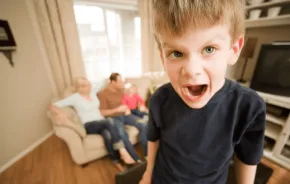By Yaffa Maritz, veteran parent educator, contributor to Community of Mindful Parents and the founder of Listening Mothers.
The last couple of weeks were particularly stressful for folks like me. As an ‘average parent’, I try to keep updated in all of the latest parenting tips, research bits, etc. (Even though my youngest is now a senior in college, parents, unlike old dogs, are forever trying to learn new tricks!)
Firstly, I was challenged by Amy Chua’s eloquently written article, which bore the unforgettable title, “Why Chinese Mothers are Superior", which appeared in the Wall Street Journal. With great authority (after all, she is a law professor at Yale!) she told me (and million of other confused parents) how to raise successful children and never look back.
Her sheer confidence threw me into a real tizzy. After all, being a Jewish mom, I always second guess myself, and often feel guilty, not ever sure as Chua seems to be, that all I did with my kids as they grew up in our somewhat chaotic, but loving home, was as perfect as it should be.
Part of me started wishing that I could have done it all over again. Perhaps I could have been an authoritarian parent, one who lays down uncompromising rules, enforces discipline, like Chua does, with hours of piano or violin practice (no wonder none of my 3 kids plays a musical instrument!) and hours of math problem solving and reading. (Expecting all A’s, appearing in the report card like ducks in a row, nothing less, or else!) Of course there would be no free play and absolutely no play dates! (Imagine that! My life could have been so orderly. The routines would have been so predictable and the house so tidy. Oh, how I wish I had the “wisdom” of the Tiger Mom back then.)
Then I read Tamar Lewin’s front-page article in the NYT, “Record Level of Stress Found in College Freshmen.” The title screamed out at me. Lewin reports that the emotional health of college freshmen has fallen to its lowest level since The American Freshman: National Norms study began collecting data, some 25 years ago.
This study of more than 200,000 incoming freshmen at four-year colleges conducted in the fall of 2010 found that the percentage of students who reported that their emotional health was above average fell to 52%, compared with 64% in 1985. College counselors confirm this. They say that the survey results are the latest evidence of what they see every day; students are depressed, stressed and are over medicated.
Another study that was conducted in 2002, (when some of the 2010 college students of the NYT article were still in grade school) they found that 28% of students reported that their teachers were stressed, 39% reported their parents were stressed, and 35% reported that they themselves were stressed "often" or "very often." This reminded me of something that I had heard from a top cardiologist not long ago. He said: “Stress in the 21st century is what Tobacco was in the 20 century, ‘the silent killer.’”
So I started to ponder, is there a way out of this pickle? We all want our children to succeed, but it seems that as a society we need to redefine what success means. In less than a week, we will be showing the movie, “Race To Nowhere”. I have not seen the film yet, but I know from reading about it, that it laments the high-pressure culture that has invaded our families and schools.
Christine Carter, in her book, “Raising Happiness” says that it is important “...not to praise, celebrate or otherwise focus on kids grades and other achievements if we want them to be successful in life". Her definition of success (based on Carol Dweck’s research) has to do with focusing on what eventually leads to mind-growth. That would be the process of learning, the effort, the hard work, rather than the grades, the achievement or whether they won the game. Interestingly enough, kids, who are praised for their process of learning, are more curious, more creative, more engaged and passionate about what they do, and paradoxically, higher achievers!
So what about stress? How can we help so that our children’s lives will be less stressful?
Kids are emotional sponges. They are sensitive and will easily absorb pressure from the environment that surrounds them. If parents are highly stressed, the kids will pick up the cues and will be stressed too. But if parents have learned skills to cope with their own stress; to self-sooth, to take time to reflect and re-balance when thing get out of control, to balance play with work, humor with sincerity, engagement with alone time, the kids too, will learn the very important skill of self regulation and well being.
Self-regulation and self-discipline are the best tools that one has to cope with stress. Self disciplined children cope better with frustration, stress and anxiety, and have better social skills that lead to greater social engagement and greater happiness.
Just a couple of days ago, I was in a conference when the keynote speaker was Sir Richard Branson. A larger than life figure, Sir Branson, at 60, still has a sense of child-like wonder about life, rarely seen at people his age. This has led him to be very successful and innovative, and still not lose his sense of fun and adventure. When asked about his success, he answered that he tributes that to his parents who loved him for who was, were always there for him and never wavered in their trust in his abilities (in spite of him being academically challenged and eventually dropping out of high school.)
To conclude he said, "Sometimes I do wake up in the mornings and feel like I've just had the most incredible dream. I've just dreamt my life.”
I believe we all have in us sense of wonder and potential for greatness and happiness.
Come and join our book club (meeting monthly) reading Christine Carter book “Raising Happiness”, or join one of our classes where as a parent you will learn skills to reduce stress and increase sense of contentment and well-being for you and your family.











